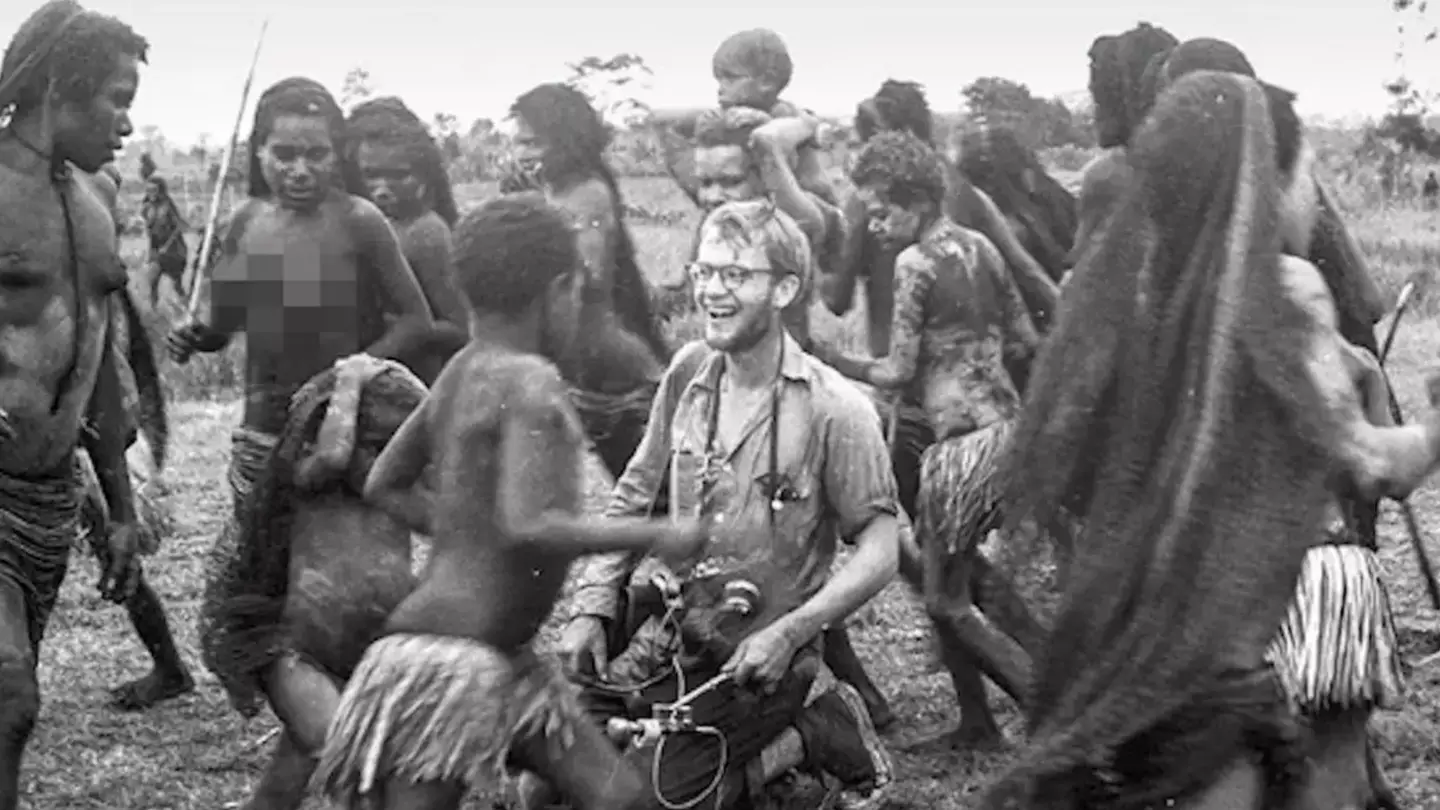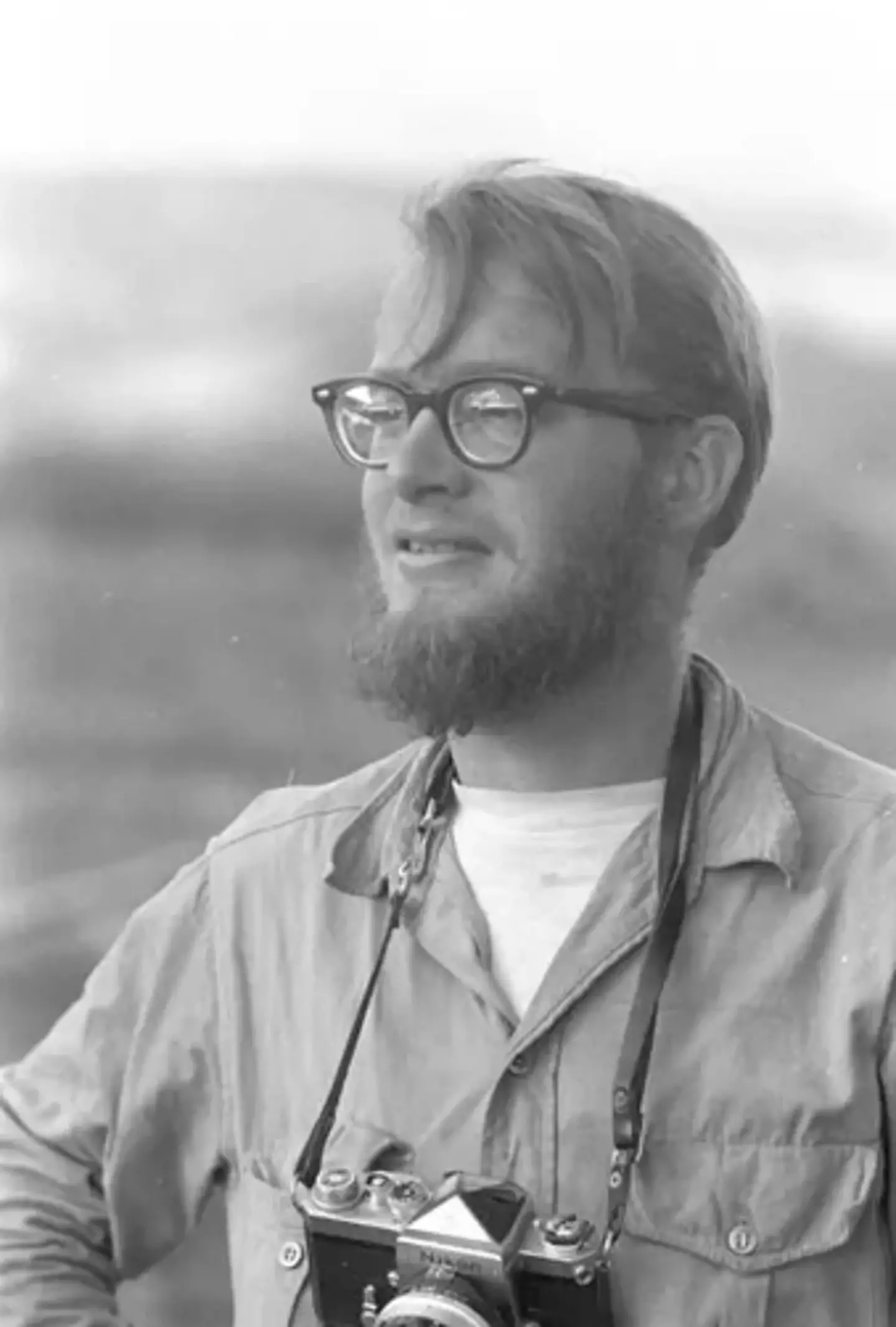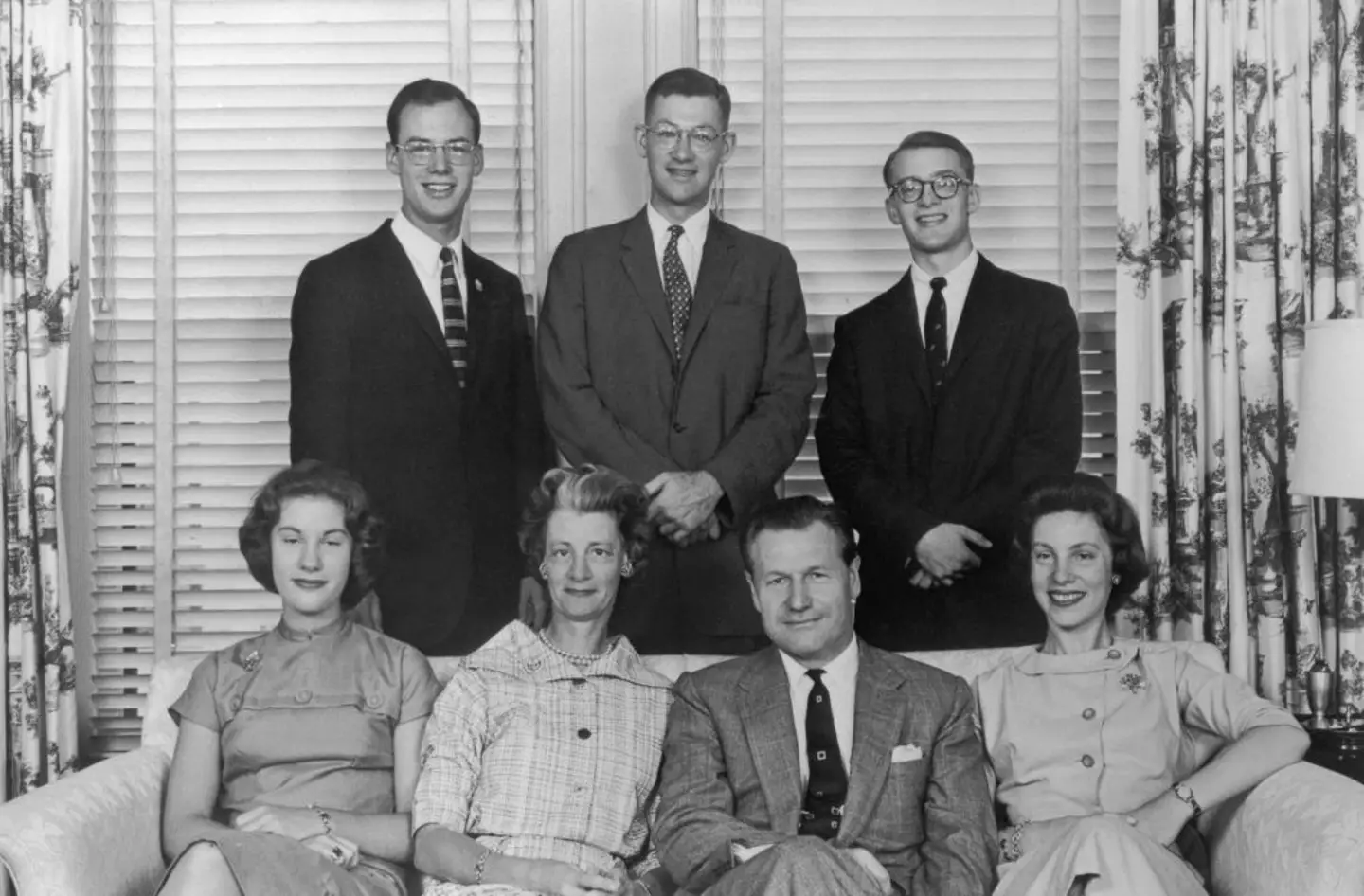
The final words of a renowned researcher who mysteriously vanished after visiting a cannibal tribe have been revealed.
Michael Rockefeller wasn't just any researcher either, as he was the son of former US Vice President Nelson Rockefeller, which put the media spotlight on him even more when he went missing in 1961.
The 23-year-old was visiting Dutch New Guinea (now West Papua) for the second time, having been welcomed with open arms on his first visit, but the second time led to his tragic death.
Even today, West Papua remains a dangerous place for visitors, as one TikTok influencer recently found out, as it is home to the indigenous Asmat tribe, who historically have been described as headhunters and cannibals.
Advert
But that didn't deter Rockefeller, who returned to the island in Indonesia in November 1961 alongside anthropologist René Wassing, who would be the last person to ever see him alive.
Their canoe capsized around three miles from the shore, which was when Rockefeller reportedly told Wassing 'I think I can make it.'

While a judge later ruled his death as drowning, his body was never discovered, and historian Carl Hoffman has now offered a different explanation for his disappearance and death.
"They killed him for these complex historical and cultural reasons," he explained, adding that Rockefeller's death happened when he swam back to shore in 1961.
"[In Asmat cosmology] the world needs needed to be balanced and righted, and that balance came from the killing of Michael Rockefeller. It wasn't some blood thirsty thing for them," Hoffman explained. "It was just making the world whole, and that was going to reclaim their culture and their power."
He continued: "I mean, these were people who had been living separate from the world on their own for, you know, 1000s of years, and they had a whole three-dimensional complex civilisation, so much so that, you know, that's why Michael was there to collect their spectacular art, which today stands in the greatest museums of the world.
"This was a culture in which, you know, some in which head hunting was incredibly important, and cannibalism itself was just an is sort of an outgrowth of head hunting. And those things took place in a very sacred, ritualised context."

Although Rockefeller was known to be a kind man to the local Otsjanep warriors, they reportedly weren't in the mood to receive visitors having lost five of their men after an incident involving the Dutch government shortly before.
So, when they discovered him lying helpless on the shore, one allegedly stabbed him in the ribs with a spear, and he was likely eaten by other cannibal members of the tribe, which you would hope was enough to convince people to stay away from tribes who steer clear of civilisation.
And yet, this sort of thing continues to happen, with a so-called travel influencer arrested earlier this year after visiting a forbidden island to gift a can of coke to a local tribe.
Topics: True Crime, History, Travel
